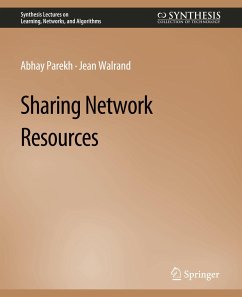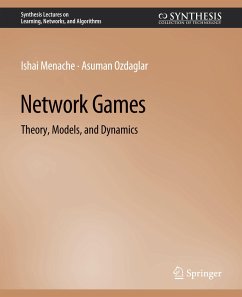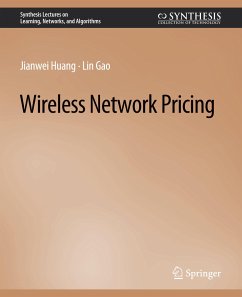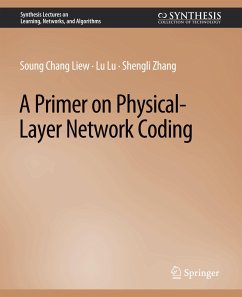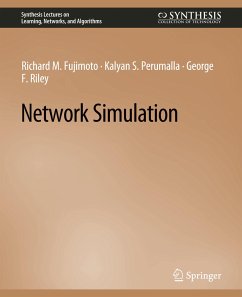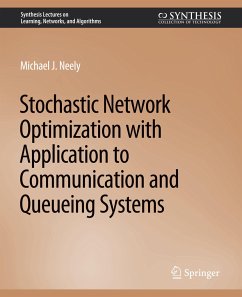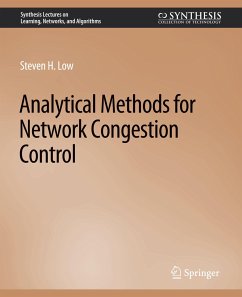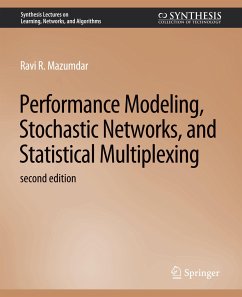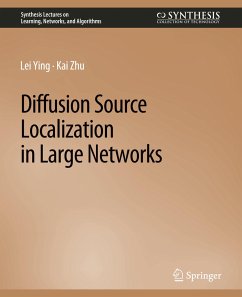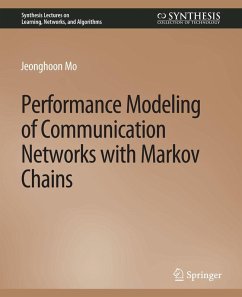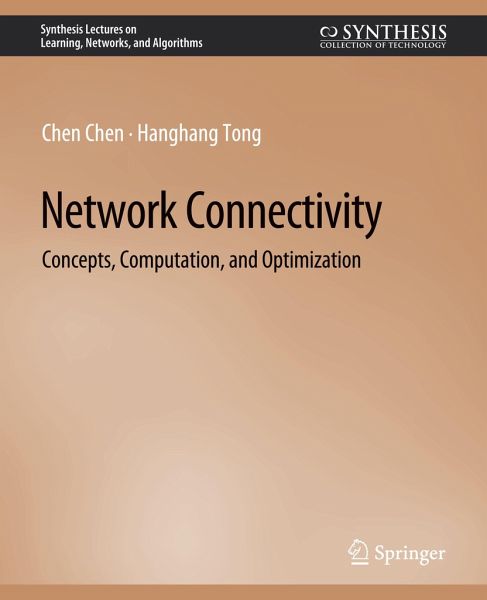
Network Connectivity
Concepts, Computation, and Optimization

PAYBACK Punkte
0 °P sammeln!
Networks naturally appear in many high-impact domains, ranging from social network analysis to disease dissemination studies to infrastructure system design. Within network studies, network connectivity plays an important role in a myriad of applications. The diversity of application areas has spurred numerous connectivity measures, each designed for some specific tasks. Depending on the complexity of connectivity measures, the computational cost of calculating the connectivity score can vary significantly. Moreover, the complexity of the connectivity would predominantly affect the hardness of...
Networks naturally appear in many high-impact domains, ranging from social network analysis to disease dissemination studies to infrastructure system design. Within network studies, network connectivity plays an important role in a myriad of applications. The diversity of application areas has spurred numerous connectivity measures, each designed for some specific tasks. Depending on the complexity of connectivity measures, the computational cost of calculating the connectivity score can vary significantly. Moreover, the complexity of the connectivity would predominantly affect the hardness of connectivity optimization, which is a fundamental problem for network connectivity studies. This book presents a thorough study in network connectivity, including its concepts, computation, and optimization. Specifically, a unified connectivity measure model will be introduced to unveil the commonality among existing connectivity measures. For the connectivity computation aspect, the authors introduce the connectivity tracking problems and present several effective connectivity inference frameworks under different network settings. Taking the connectivity optimization perspective, the book analyzes the problem theoretically and introduces an approximation framework to effectively optimize the network connectivity. Lastly, the book discusses the new research frontiers and directions to explore for network connectivity studies. This book is an accessible introduction to the study of connectivity in complex networks. It is essential reading for advanced undergraduates, Ph.D. students, as well as researchers and practitioners who are interested in graph mining, data mining, and machine learning.





